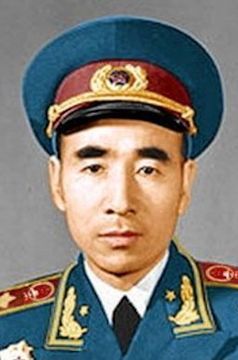
|
Lin Biao -- On the Course the Great Proletarian Cultural Revolution - Page 2
Chairman Mao has always attached major importance to the struggle in ideology. After the liberation of our country, he initiated many criticisms including those of the film "The Life of Wu Hsun," the Hu Feng counter-revolutionary clique and Studies of "The Dream of the Red Chamber." And this time it was Chairman Mao again who led the whole Party in launching the offensive on the positions occupied by Liu Shao-chi and his gang for the bourgeoisie. Chairman Mao wrote the celebrated essay "Where Do Correct Ideas Come from?" and other documents, in which he criticized Liu Shao-chi's bourgeois idealism and metaphysics, criticized the departments of literature and art under Liu Shao-chi's control as being "still dominated by 'the dead," criticized the Ministry of Culture by saying that "if it refuses to change, it should be renamed the Ministry of Emperors, Kings, Generals and Ministers, the Ministry of Talents and Beauties or the Ministry of Foreign Mummies" and said that the Ministry of Health should likewise be renamed the "Ministry of Health for Urban Overlords." At the call of Chairman Mao, the proletariat first launched a revolution in the fields of Peking Opera, the ballet and symphonic music, fields that had been regarded as sacred and inviolable by the landlord and capitalist class. It was a fight at close quarters. Despite every possible kind of resistance and sabotage by Liu Shao-chi and his gang, the proletariat finally scored important successes after arduous struggles. A number of splendid model revolutionary theatrical works appeared and the heroic figures of workers, peasants and soldiers finally took the centre of the stage. After that, Chairman Mao initiated the criticism of Hai Jui Dismissed from Office and other poisonous weeds, focusing the attack right on the den of the revolutionary clique -- the impenetrable and watertight "independent kingdom" under Liu Shao-chi's control, the old Peking Municipal Party Committee. ⇦ Back to Page 1 Return to Lin Biao's Speeches On to Page 3 ⇨ |